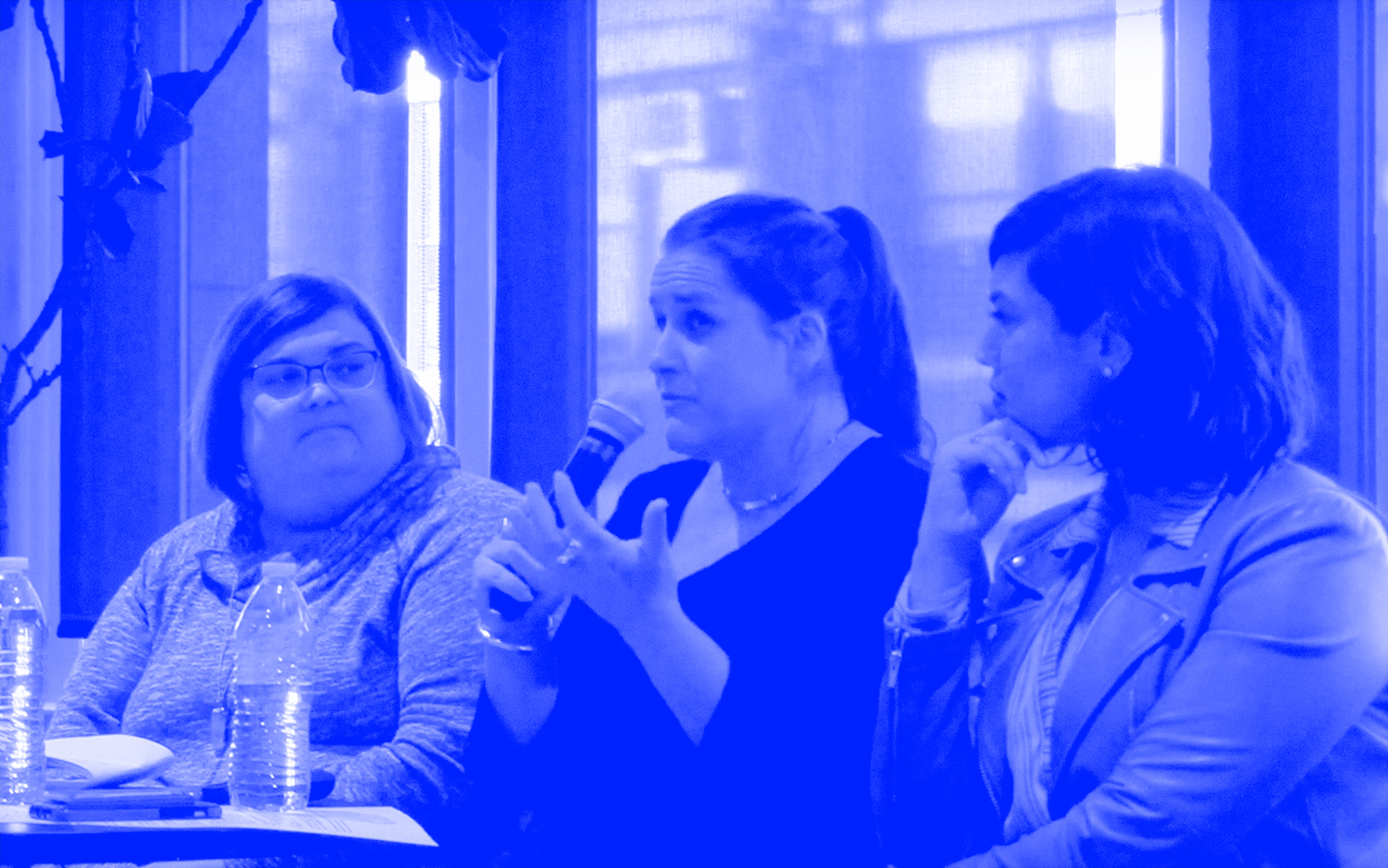“Fake news” isn’t exactly new: Tabloids have long hawked alien baby photos and Elvis sightings. Many have thus argued that fake news—propaganda, misinformation, and conspiracy theories—have always existed, and therefore requires no new consideration.
When we agonize over the fake news phenomenon, though, we are not talking about these kinds of fabricated stories. What we are really focusing on is why we have been suddenly inundated by false information—purposefully deployed—that spreads so quickly and persuades so effectively. This is a different conception of fake news, and it presents a question about how information operates at scale in the internet era.
In this Databite talk, Nabiha Syed explores how existing First Amendment theories fail to adequately explain our digital information economy, and how that theoretical incoherence leaves users and social media platforms ill-equipped to deal with “fake news” and other “bad” speech online. Nabiha also offers several factors to be considered in any systemic theory that can help move us beyond the troubled status quo.
Claire Wardle and Joan Donovan contribute their insights and dig into discussion that culminates in a Q&A session.
Nabiha Syed has been described as “one of the best emerging free speech lawyers” by Forbes Magazine. She is currently the Assistant General Counsel at BuzzFeed, where she handles publication, privacy, and access matters, and a non-resident fellow at both Stanford Law School and Yale Law School. Prior to BuzzFeed, Nabiha was an associate at Levine Sullivan Koch & Schulz, a leading First Amendment law firm, and the First Amendment Fellow at The New York Times. She has worked on legal access issues at Guantanamo Bay, Cuba; counseled on whether to publish hacked and leaked materials; and advised documentary filmmakers through the Sundance Institute Documentary Film Program. She was named as a “40 Under 40 Rising Star” by the New York Law Journal in 2016, and a finalist for the Outstanding Young Lawyer of the Year Award from the International Bar Association in 2017. Nabiha is a graduate of Yale Law School, where she co-founded the Media Freedom and Information Access legal clinic, and Oxford University, which she attended as a Marshall Scholar.
Claire Wardle is the Executive Director of First Draft, dedicated to finding solutions to the challenges associated with trust and truth in the digital age. Claire is a Research Fellow at the Shorenstein Center on Media, Politics and Public Policy at the Harvard Kennedy School where First Draft is now a project. She also sits on the World Economic Forum’s Global Agenda Council on the Future of Information and Entertainment. She was previously the Research Director at the Tow Center for Digital Journalism at Columbia Journalism School, head of social media for the UN Refugee Agency and Director of News Services for Storyful. She is one of the world’s experts on user generated content, and has led two substantial research projects investigating how it is handled by news organizations. In 2009 she was asked by the BBC to develop a comprehensive social media training curriculum for the organization. She holds a PhD in Communication and an MA in Political Science from the University of Pennsylvania, where she won a prestigious Thouron Scholarship. She started her career as a professor at Cardiff University’s School of Journalism, Media and Cultural Studies.
Joan Donovan completed her PhD in Sociology and Science Studies at the University of California San Diego, and went on to become a postdoctoral fellow at the UCLA Institute for Society and Genetics, where she researched white supremacists’ use of DNA ancestry tests, social movements, and technology. For several years, Joan has conducted action research with different networked social movements in order to map and improve the communication infrastructures built by protesters. In her role as a participant, she identifies information bottlenecks, decodes algorithmic behavior, and connects organizations with other like-minded networks. At Data and Society, she is the project lead on media manipulation.
About Databites
Data & Society’s “Databites” speaker series presents timely conversations about the purpose and power of technology, bridging our interdisciplinary research with broader public conversations about the societal implications of data and automation.


